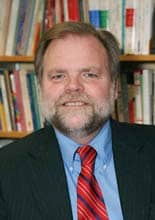By Bruce Epperly
 Watching the new movie Eat, Pray, Love is a great way to spend a weekday afternoon. While it could be described as "spirituality lite," it speaks to the journey of self-discovery many of us experience after a significant life trauma, such as divorce or serious illness. It awakens us to the adventure around the corner as well as the adventure around the world. Although it speaks of a woman's journey, it reflects the quest for something "more" -- the quest for self-awareness -- that is at the heart of the human adventure. That universal quest for something "more" takes us beyond the adventures of upper middle-class privilege to discovering holiness right where we are.
Watching the new movie Eat, Pray, Love is a great way to spend a weekday afternoon. While it could be described as "spirituality lite," it speaks to the journey of self-discovery many of us experience after a significant life trauma, such as divorce or serious illness. It awakens us to the adventure around the corner as well as the adventure around the world. Although it speaks of a woman's journey, it reflects the quest for something "more" -- the quest for self-awareness -- that is at the heart of the human adventure. That universal quest for something "more" takes us beyond the adventures of upper middle-class privilege to discovering holiness right where we are.
I believe the film and book upon which it is based present an invitation to moderate and progressive Christians to take the spiritual journeys of people more seriously in preaching, program, and outreach. We have not highlighted either our spirituality or theology in ways broadly accessible to the public. Sadly, when non-Christians and many Christians think of Christian spirituality, their minds are drawn to images of Pentecostals speaking in tongues, monks praying in monasteries, and conservatives carrying Bibles or placards. Seldom do people think of moderate and progressive Christianity as transformational, despite the many stories of people who have found new visions of God -- a God they can believe in -- through progressive theology. Often the last place seekers would expect to find spiritual experiences is in one of our churches.
But we progressive and moderate Christians have a story to tell and a gift for seekers like Elizabeth Gilbert. At one point, she calls on God, asking God for guidance on the path she should take. Her path takes her to the table, to the ashram, and to romance -- to whole-hearted embodiment. It doesn't take her to church, nor does it take her to the pathway of the mind; it is unclear what she really thinks about the complex metaphysics behind devotion to the Guru as a path to God or how this relates to the rest of her life. Experience is what's important. In that regard, the one thing she misses is the "mind" -- in fact, the mind is seen as a problem in the path of self-discovery. The mind can also be a blessing: when seen as fluid and adventurous it can be the source of possibility and perspective that takes us beyond ourselves to explore our role as God's partners in healing the earth and finding a faith for the whole person.
Here is where the gifts of moderate and progressive Christians come in. Our gifts are not just for our own people -- and we are often missing the boat here in providing good spiritual nourishment for persons in the pews -- but for seekers. In an open-hearted, mutual, and non-hierarchical way, we can take seriously the whole-bodied quests of seekers like Gilbert, and they are everywhere, by:
Presenting a vision of God that is accessible -- focusing on the presence of God in the ordinary; the God of possibility, adventure, and forgiveness; a God whose grace encompasses all of us; a God who affirms science, medicine, and literature. Most seekers imagine God in stuffy, killjoy terms, not as the supreme adventurer and source of love and beauty. (Patricia Adams Farmer's The Metaphor Maker is an excellent portrayal of how the progressive vision of God can change a person's life.) Our God is countercultural and seldom what we thought God was; our God is the God of evolving universes and intimate moments.
Providing practices that deepen people's spirituality: every congregation should be a laboratory for spiritual transformation -- providing easy-to-learn meditative techniques, courses on prayer, ways of exploring personal healing.
Awakening persons to the connection between heart, hands, and mind: through service to the planet and the neighborhood joined with reflection on God, prayerful practices, and small group relationships.
Truly moderate and progressive churches are places where people can "eat" -- sharing the communion meal and meals of fellowship; "pray" -- learning about a God who truly loves us, all of us, and opening our spirits through meditation, song, movement, and prayer; and "love" -- sharing in healing relationships among friends but also toward strangers, learning to love the world by serving the world. Our task is not to compete with other paths, but to provide lively, accepting, and transformational spiritual homes for seekers in our neighborhoods and the seeker in us.
8/25/2010 4:00:00 AM





